The Marion Voices Folklife + Oral History Project is truly a collaborative effort, birthed out of three years of ongoing organizing, co-visioning, and conversation. Learn more about our host organization (Marion County Historical Society), our core project team, our community partner organizations across Marion County, and the community scholars and consulting humanities scholars that support from Ohio Humanities allows us to bring aboard as a project advisory committee!
CONTACT US at marionvoicesoralhistory@gmail.com for questions, to get involved, or to recommend a community member to be documented for our project work!
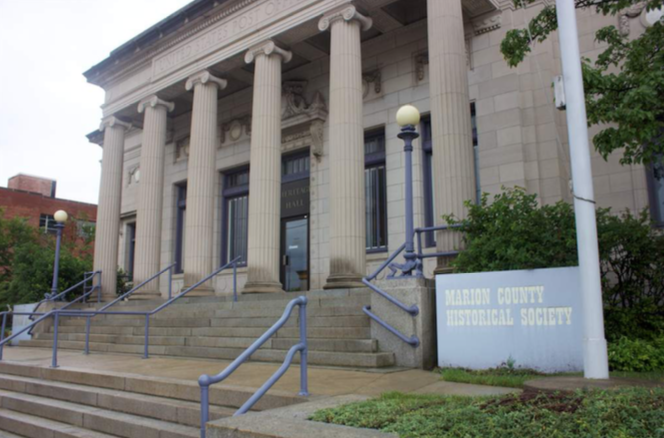
HOME ORGANIZATION
The Marion Voices Folklife + Oral History Project is housed at the Marion County Historical Society. Founded in 1969, MCHS is Marion County’s premiere local historical society. Marion Voices is helping MCHS more fully commit to its mission to serve all of Marion County, through an explicit emphasis on the documentation, interpretation, and exhibition of the stories, histories, memories, and heritage cultural traditions of Marion County’s vibrant underrepresented and minority communities.
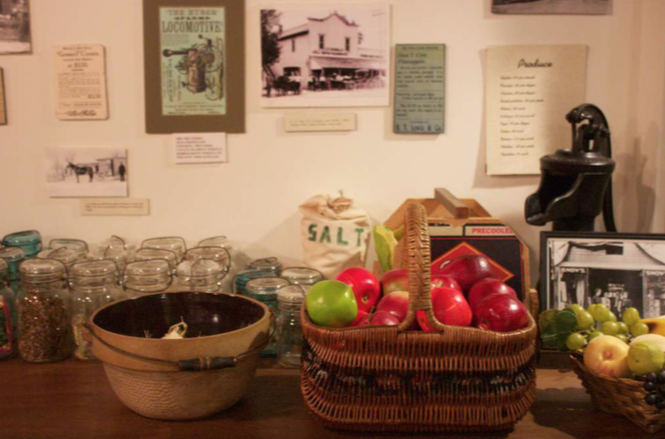
HISTORY: The Marion County Historical Society, from the beginning, has been a local history society for and by the people of Marion County. MCHS was formed in 1969 by community members who had heard Judge Charlton Myers’ Marion history show on WMRN, and subsequently took his adult education classes on Marion’s local history. MCHS’s Mission Statement holds us to “maintain the existing interest in the history of Marion County, Ohio; create an interest where it does not now exist.”
Today, MCHS exists to document, collect, preserve and share out Marion’s history as a crossroads of Ohio. With over 500 members, MCHS is housed in Marion’s historic post office (Heritage Hall), and supports exhibitions and programming including:
• Two floors of permanent and rotating exhibits curated from MCHS collections, including the Guthrie Store, Harding Room and Industrial Room
• “Night at Heritage Hall” seasonal kick-off event each March
• Popular living history programming, such as “Dinner with the President/First Lady” (with period themed dinners)
• “Blast from the Past” traveling youth education/outreach programs
MCHS also stewards the Linn Schoolhouse and two historic restored buildings at the Marion Fairgrounds’ Pioneer Green.
In the past five years, MCHS accomplishments include:
• Interview/location filming for a Mysteries of the Museum episode on President Harding
• “Save Our History” award from the History Channel
• Ohio Local History Alliance (OLHA) award to Past Board President Randy Winlind for the MCHS Activity Book
• Publication of Arcadia Press book on Marion’s Seven Villages
• Ohio Arts Council top-ranked ArtsNEXT grant and Ohio Humanities Major Grant for our Marion Voices Folklife + Oral History project/program work.
A deeply community-centered approach has always been a priority in MCHS’s preservation, collection and programming efforts. Via the Marion Voices project, and beyond, MCHS is excited to do the work of connecting with our county’s underserved communities, who are not well represented in our collections, museum exhibits, or public programs. We are especially interested in collaborating with Marion City’s historic Black/African-American communities, with the county’s newer Latinx communities, and in better understanding the diaspora of Appalachian families to the county during WWII. On the heels of MCHS’s recent Arcadia Press publication on postcard histories of Marion’s villages, we are also committed to deepening our connections with the robust network of local historians and tradition-keepers in our rural villages and in historically marginalized communities and communities of color in Marion County.
COMMUNITY PARTNER ORGANIZATIONS
Following the inspiration of Marion County Extension Educator Whitney Gherman, who has advocated for the power of a collective impact model to transformative, participatory collaborative community development, Marion Voices was planned and envisioned in community, thanks to the input, imagination, feedback, and support of a host of incredible community partner organizations from around the county. We are lucky to work with and alongside of the following amazing Marion County non-profits, networks, church communities, and organizations: Black Heritage Council; Logos Christian Ministries; WDIF “TruBlues975” LP-FM; OSU Extension — Marion County; Terradise Nature Center; Marion Public Library, and Marion City Schools.
Thank you to all of our amazing community partners from these organizations for collaborating in the planning & execution of this work! We encourage you to visit the websites of each of our partner organizations, and learn about their work and mission!
Black Heritage Council
Founded over four decades ago, Marion’s Black Heritage Council is the county’s leading cultural and heritage organization dedicated to the documentation, preservation, celebration, and dissemination/transmission of Marion County’s black history, heritage, and historically Black cultural and traditional arts forms. BHC runs a robust county-wide educational scholarship program to promote racial justice in higher education access, & organizes an annual Black Heritage banquet & awards ceremony.
Marion Area Convention & Visitors’ Bureau
As the county’s key seat for cultural/heritage tourism, the Marion Area Convention & Visitors’ Bureau has been a key community partner for the Marion Voices project since the beginning. Director Mark Holbrook was the inaugural promotions/outreach coordinator for our early efforts, and worked, from 2017-2019, providing services & expertise towards our project’s community engagement strategy. MACVB coordinates all out-of- county tourism planning efforts for Marion County, and is excited for the contributions Marion Voices can make for Marion County cultural heritage tourism.
OSU Extension Services — Marion County
The Ohio State University’s Extension Services have a robust office in Marion County, uniquely committed to “collective impact” and culturally-inflected strategy to improve “vitality of place” in Marion County. Community Vitality Extension Officer Whitney Gherman coordinates the Community Voices community capacity- building program and rural blight efforts on Marion’s West Side & throughout the county; and has provided tremendous moral, emotional, and institutional support and collaboratively strategizing for the Marion Voices Oral History & Folklife Survey since 2018!
Marion Public Library
The Marion Public Library is Marion County’s independent public library system, with a main library in downtown Marion, Ohio, and branch offices in the villages of Caledonia and La Rue. MPL’s Communications/Outreach Director Diane Watson serves as President of the Board at MCHS, and is deeply invested in supporting the Marion Voices Bicentennial Folklife/Traditional Arts Survey as an important cultural engagement effort county-wide, paving the way for collaborative future cultural arts programming & events.
Logos Christian Ministries
Logos Ministries is a vibrant community congregation in Marion, Ohio, helmed by Pastor Jacqueline ‘Jackie’ Peterson. As an advocate for Black heritage, cultural arts & experience in Marion County, Pastor Peterson and her congregation have been key community partners in the Marion Voices project, and key members of our planning committee, since Fall 2018. Pastor Peterson is deeply connected with Black communities across Marion County, & Logos is helping our project compile lists of culture-keepers and Black community elders to document.
Terradise Nature Center at Terradise Nature Preserve
Located in visionary Marion County historian & naturalist Trella Romine’s former home along the scenic Olentangy River, Terradise Nature Center is a 501(c)(3) nature and environmental education center situated along the Terradise Nature Preserve on the outskirts of the Village of Caledonia. Founder David Haldeman is an original founding member of the Marion County Historical Society; and is committed to opening the Terradise Nature Center as a community space for Marion Voices fieldwork & folklife/oral history programs + events.
WDIF-LP FM “TruBlues975” Radio Station
WDIF-LP FM “TruBlues975” is Marion’s home-grown, community- powered 24/7 blues & hip-hop radio station. Run by a roster of local artists and musicians, and the “community radio” arm of 501(c)(3) youth music educational organization Marion Makes Music (which provides instrument purchase/loans for K-12 students), WDIF’s DJs make up a vibrant network of blues, hip-hop, R&B and emergent rap artists from across Marion County. WDIF will promote Marion Voices efforts & air our fieldwork documentation.
Marion City Schools
Marion City Schools will be a key community partner for the MarionVoices Bicentennial Folklife/Traditional Arts survey and oral history project. Black tradition-bearers and memory-keepers may be able to be featured in or funded to present to and/or perform at Marion Harding High School; and our project team will offer presentations & fieldwork training to teachers & students as a part of our larger outreach. Marion Voices is especially excited to collaborate with Marion Harding High’s African-American Studies class — which was formed as a result of a student sit-in, demanding a curriculum that spoke to Black experiences, lives, culture, and arts, in the late 1970s.
CORE PROJECT TEAM
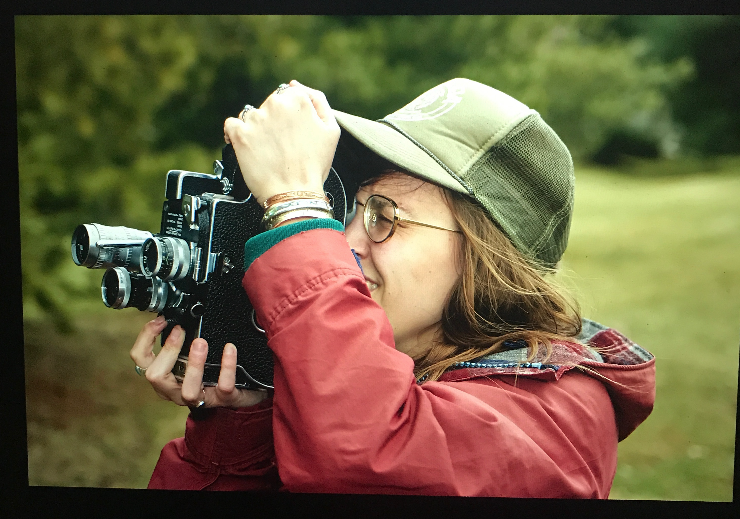
Jess Lamar Reece Holler — Project Director, Marion Voices
Jess Lamar Reece Holler is a community-based public folklorist, oral historian, curator and multimedia producer based in Columbus and Caledonia, Ohio. Her projects imagine cultural work for social change at the intersections of health, environmental justice, labor, and sense of place.
Jess was the Founder & Project Director for the Ohio Ecological Food and Farm Association’s Growing Right Oral History Project, supported by Ohio Humanities and the Greater Columbus Arts Council, from 2016-2019; and has conducted oral history & folklife projects for the American Folklife Center, Kentucky Oral History Commission, Ohio History Connection, and more. In 2018-2019, she served as Field Coordinator and Eastern Ohio Fieldworker on the Mid-Atlantic Arts Foundation’s Central Appalachian Folk & Traditional Arts Survey & Planning Project, conducting interviews, needs assessments, and program planning conversations and focus groups with cultural artists and arts, culture, history, and heritage organizations in 20 counties in Eastern & Southeastern Ohio; and, from 2016-2017, she served as the Research Lead for Ohio History Connection’s 88-county Dear Ohio listening tour, building partnerships with local historical societies and CVB’s across the state, and conducting extensive research on Ohio festivals and sense-of-place.
Jess has trained extensively in public folklore, oral history, public history, & community arts practice at institutions across the U.S., and holds her M.A. in Public-Sector Folk Studies from Western Kentucky University. She is active in the National Council on Public History, American Association for State & Local History, and serves on the Membership Committee of the Oral History Association; and was selected as a 2019 Summer Delegate in the American Folklore Society-China Folklore Society’s Summer Institute on Intangible Cultural Heritage, held in Guangzhou, China.
Jess is principal at Caledonia Northern Folk Studios, a folklife & oral history consultancy, where she helps build capacity and lead collaborative community engagement and deeper diversity & inclusion/justice planning processes for local history, arts, and heritage organizations across Ohio. For more, visit: caledonianorthern.org.
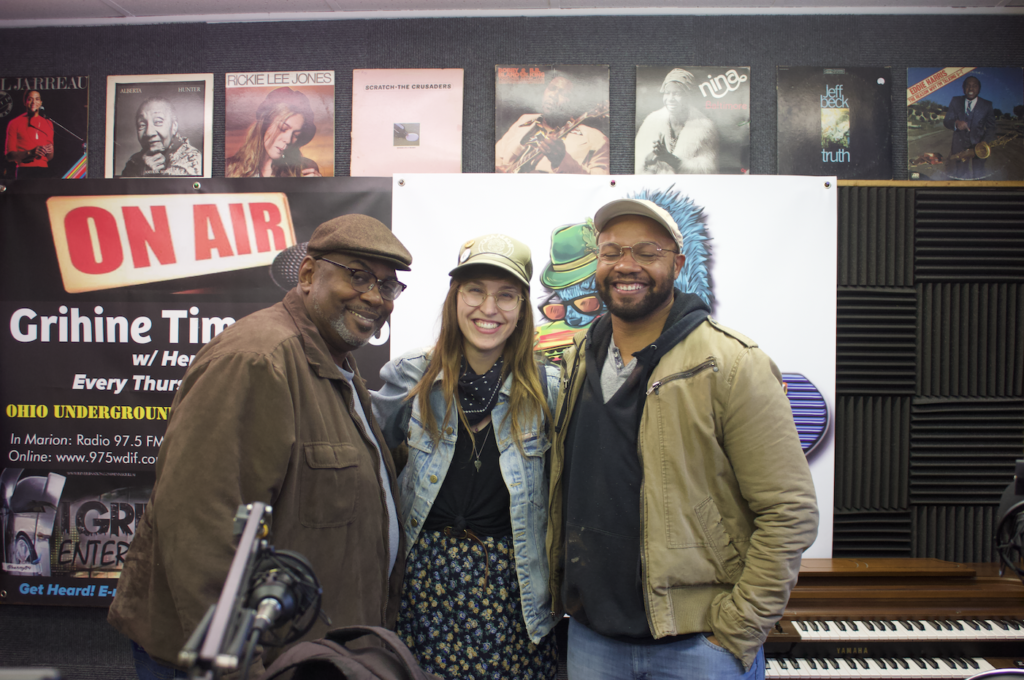
Johnnie Jackson — Community Coordinator, Marion Voices
Johnnie Jackson is a PhD. Candidate in the Department of Educational Leadership at Miami University; and is an active community and cultural organizer, educator, activist and memory-keeper in Marion City, as well as a consultant on topics of racial justice, economic justice, diversity/inclusion/equity (DEI) and community-based strategy. Johnnie has taught in teacher education programs in the U.S. and South Korea; and his PhD. work has combined extensive training in cultural studies with praxis for transformative, community leadership. Johnnie also holds a Bachelor’s and Masters in Business Management and Marketing (MBA) from the University of Findlay.
Johnnie’s doctoral research focuses critical race theory and practice in teacher education; and he is currently completing an auto-ethnographic dissertation on Black narratives of study abroad experience, focused on his decade of work leading students in comparative cultural study/study abroad in Korea and Argentina.
Johnnie has published extensively on topics ranging from cross-cultural education to Afro-Futurism to Asian-American/African-American solidarities to hip-hop, Black feminism, and special education. He is active on boards and organizations across Marion County, working to imagine more just and resilient futures for North-Central Ohio, rooted in emergent strategy; and, in 2018, co-coordinated the Community Voices Community Leadership Training series, with Whitney Gherman at OSU Extension.
Johnnie has served as the Community Coordinator on the Marion Voices project since 2017, but has been doing cultural organizing and educational and racial justice work in Marion County for much, much longer. Johnnie is from Marion, Ohio, and is a proud graduate of Marion Harding High School.
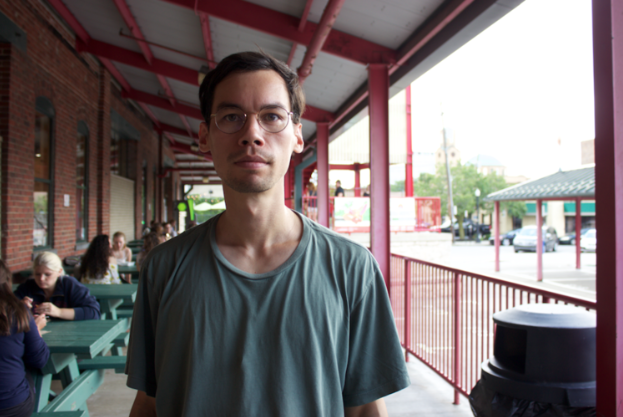
Jeremy Purser — Designer (Graphic, Exhibit, Web), Marion Voices
Raised in a small Air Force town in North Carolina, Jeremy Purser consumed visual culture faster than his rural environment and transient milieu could provide. After a couple of missteps in undergraduate declarations, Jeremy settled on a Bachelor of Arts with a focus in printmaking from the University of North Carolina. Followed quickly by an addendum at North Carolina State University, Jeremy earned a professional degree in graphic design where he also directed the design of NC State’s annual arts and literary magazine, Windhover. In the era of “print is dead,” Jeremy moved to New York City to find otherwise. He ran through a few a jobs that opened his eyes to new world views where ideas such as “dream job” or “career” lost their magic. A confluence of these changes and an opportunity in Hudson, New York led to a graphic design position with Modern Farmer magazine. He worked as junior designer on two issues of the quarterly magazine with editor-in-chief Anne Marie Gardner and art director Sarah Gephart. After a few shocks of startup turbulence, Jeremy left the magazine and New York’s Hudson Valley to move to his partner’s home of Central Ohio, and then back home to Durham, North Carolina. There, he uses design as skill set to assist institutions, movements, and campaigns he believes in — like this one: Marion Voices! Jeremy served for three years as a graphic and exhibit designer for the Ohio Humanities-funded pubic history project Growing Right: Ecological Agriculture in Ohio, 1960s-Now.
Jeremy is a freelance graphic designer, programmer, and web developer, specializing in design for small community non-profits and social justice and public humanities projects via his design label, SLOWPOACH Design Studio.
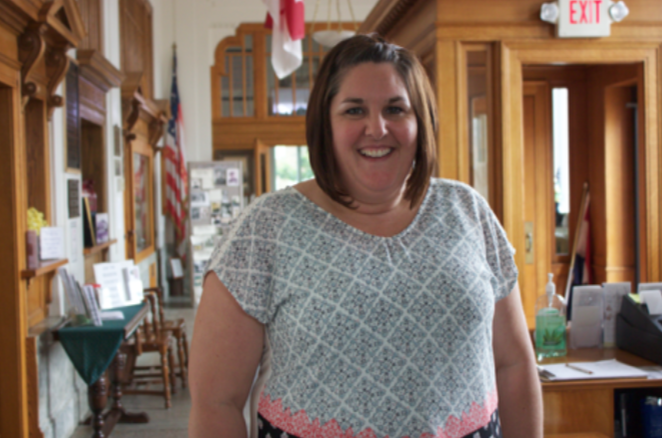
Brandi Wilson — Executive Director, Marion County Historical Society
Brandi Wilson is currently Executive Director for the Marion County Historical Society, which also operates the Heritage Hall Museum. Since taking the helm in May 2017, Brandi has helmed MCHS’s new strategic visioning process — including an expansion of community engagement and education program offerings, and collaborating in the visioning, community planning process, and execution of the Marion Voices Folklife + Oral History Project.
Before joining the Marion County Historical Society, Brandi spent 17 years working for amid-sized software company, focusing on software sales and customer relations. (Brandi knows how to get things done!)
Born & raised in Marion, Ohio she is passionate about local history and hopes to expand on the good works of her predecessors by inspiring others to embrace their inner historian — via a new mission to help MCHS serve all Marion residents! (marionhistory.com)
COMMUNITY SCHOLARS
Ms. Tara Dyer — Black Heritage Council
Ms. Tara Dyer is a life-long educational leader, advocate and activist for Black heritage, history and educational equity in Marion County. After a career teaching K-12 in Marion Public Schools, Ms. Dyer has dedicated her life in Marion to racial justice and equity work, through long-term service with Marion’s Black Heritage Council, and a network of other community empowerment/cultural arts groups & organizations. In her work in the schools, Ms. Dyer helped found and write grants to stand up an award-winning education program bringing college opportunities and training to Black high schoolers at Marion Harding High schools — including field-trips to HBCUs like Morehouse and Spelman. (Community Coordinator Johnnie Jackson is a graduate of that program!) Ms. Dyer is also involved in local politics, and was a 2018 Marion County Commissioner candidate. In 2019, she launched a new program in the Marion public schools, focused on mentorship and pairing young Black students with adult mentors from the community.
Pastor Jacqueline ‘Jackie’ Peterson — Logos Christian Ministries
Pastor Jackie Peterson is the founding minister of Logos Christian Ministries in Marion, Ohio, as well as an active advocate for Black heritage, history, culture and educational opportunities across Marion County. She is active with the Marion Minority Commission and networks of historically Black/black churches & ecclesiastical organizations in Marion County. Logos Ministry is active in social service projects to benefit the wider Marion County community. Pastor Peterson was also involved in the Civil Rights Movement in Marion County, as the first Black woman to integrate a Marion bank — where she worked for much of her career until being called into the ministry.
‘Silky’ Ray Macklin — WDIF “TruBlues975” LP-FM
“Silky” Ray Macklin is a renowned local Marion County musician, Blues performer, and DJ; and is an active leader of Marion County’s WDIF-LP FM community blues station. Ray — known as “Silky Ray” to listeners and fans — hosts a daily morning blues and talk show, which brings Marion together around pressing issues and cultural developments. Ray has been a passionate supporter of the Marion Voices project since he first brought Community Coordinator Johnnie Jackson and Project Director Jess Lamar Reece Holler “on the air” to discuss their upcoming community project planning sessions in November 2018. Ray and his band perform avidly across Central Ohio. As a musician and media-maker, Ray brings a critical perspective on Black folklife and cultural experience in Marion to a project focused on the intersections of culture and history in the late-2oth century.
CONSULTING HUMANITIES SCHOLARS
Dr. Nishani Frazier is Associate Professor of History at Miami University. Prior to Miami University, she held positions as Associate Curator of African American History and Archives at Western Reserve Historical Society, Assistant to the Director of the Martin Luther King, Jr. Archives at the Martin Luther King Center for Nonviolent Social Change, and personal assistant for Dr. John Hope Franklin. Her research interests include 1960s freedom movements, oral history, foodways, digital humanities, and black economic development. She is the author of Harambee City: The Congress of Racial Equality in Cleveland and the Rise of Black Power Populism, the Harambee City digital oral history book companion website, and has consulted on several digital history grants.
Dr. Ric Sheffield is Distinguished Professor of Diversity and Inclusion at Kenyon College. In addition to having served as Associate Provost of the College, he is the Director of Kenyon’s Law & Society Program and the John Adams Summer Scholars Program in Socio-legal Studies. His research has focused upon the relationship between law and issues of gender, race, and ethnicity. He has lectured widely on issues of race and law as well as African Americans in rural Ohio.
Suzanne Snider is a writer, documentarian and educator deeply influenced by oral history theory and practice. Recent projects include sound installation, essays and archive design. In 2012, she founded Oral History Summer School in Hudson, New York to explore experimental applications of oral history practice. Her writing/audio work appears in The Guardian, The Believer, The Washington Post, BOMB, and has been supported by Yaddo, the MacDowell Colony and the Radcliffe Institute/Schlesinger Library. She holds an MFA (nonfiction) from Columbia University; and teaches at the New School University.
Dr. Howard L. Sacks taught at Kenyon since 1975 and was Kenyon’s first recipient of the National Endowment for the Humanities Distinguished Teaching Professorship. Trained in sociology, his research specialties include social psychology, contemporary social theory, and community field research, with special interests in traditional art and culture, folklore, ethnomusicology and cultural politics. Under his direction, Kenyon’s Rural Life Center received over thirty grants for scholarly research and public programs with the local community, including five award- winning projects on regional life.
Brooke Bryan is Instructor of Cooperative Education at Antioch College where she specializes in phenomenological oral history and undergraduate research frameworks. With expertise in qualitative interview methodology and the digital humanities, she develops partnerships and field-based research opportunities for and with Antioch students — scaffolding their intensive engagement with communities with oral history research. Supported by the Great Lakes Colleges Association, Brooke directs Oral History in the Liberal Arts—a three-year initiative funded by the Andrew W. Mellon Foundation that supports undergraduate oral history research by providing workflows and tools in the digital humanities across 13 institutions.
Trained in public history at UNC-Greensboro, Meghan Reed serves as the Executive Director at the Trumbull County Historical Society based in Warren, Ohio. Under her tenure, the Society has worked to deepen its connections and collaborate with historically underserved communities. For these efforts, the TCHS was presented with two awards at the 2018 Ohio Museums Association Conference. Under Meghan’s leadership TCHS is now embarking on an Ohio Humanities-funded oral history project to document and amplify the stories of five historically marginalized neighborhoods in the city of Warren.
Doug Boyd, Ph.D. directs the Louie B. Nunn Center for Oral History at the University of Kentucky Libraries and is a recognized leader regarding oral history, archives, and digital technologies. He managed the IMLS-funded Oral History in the Digital Age project; and currently leads the team that envisioned, designed, and is implementing the open-source Oral History Metadata Synchronizer (OHMS) system, which synchronizes text with audio and video online. Doug holds a PhD in folklore and ethnomusicology from Indiana University and is the author of several books on oral history practice in the digital age.
Dr. Nancy Groce, a Senior Folklife Specialist at the Library of Congress’s American Folklife Center, is an ethnomusicologist, folklorist, oral historian, and historian specializing in the study of American and Western European music, folklore, occupational folklife, and urban culture. She holds a Ph.D. in American Studies from the University of Michigan. Prior to joining the Library in 2007, she curated festival programs for the Smithsonian Institution Center for Folklife and Cultural Heritage, and worked as a folklorist and museums professional for state and federal institutions, museums and non-profits. In her current position at the Library of Congress, Groce oversees the Benjamin A. Botkin Lecture Series and the Archie Green Fellowship Program, and heads the Occupational Folklife Project, a digital documentation initiative collecting oral histories of workers across the United States.